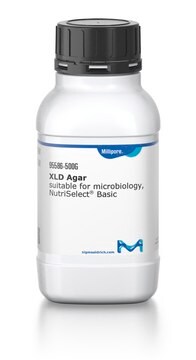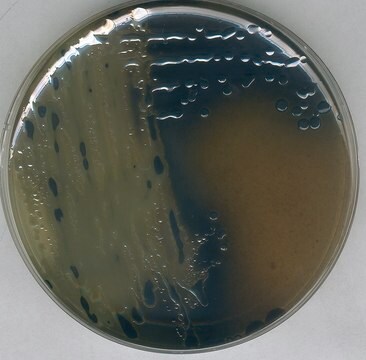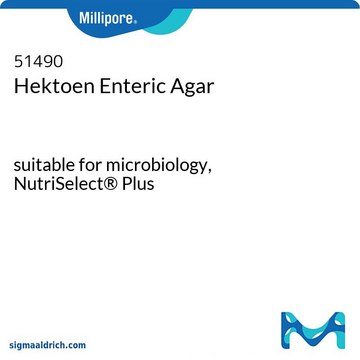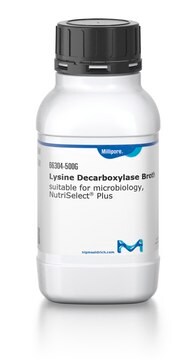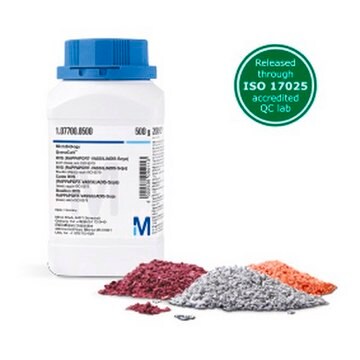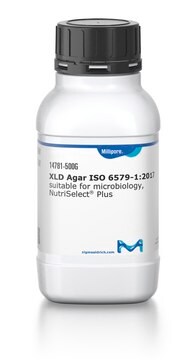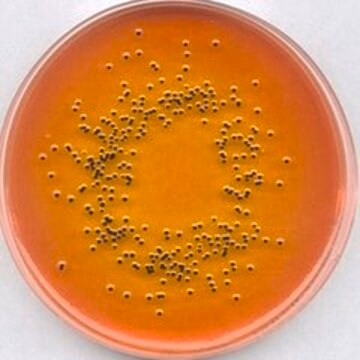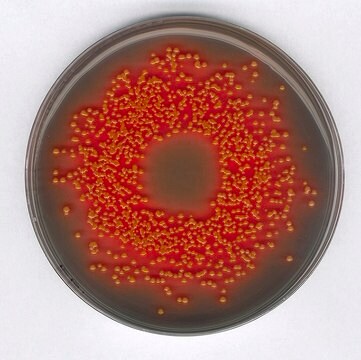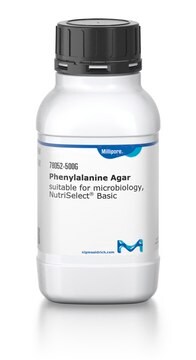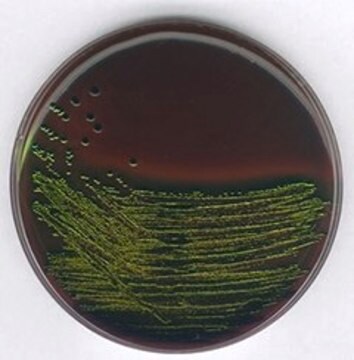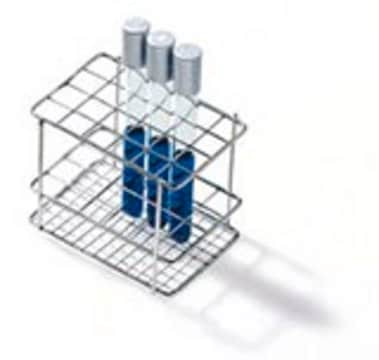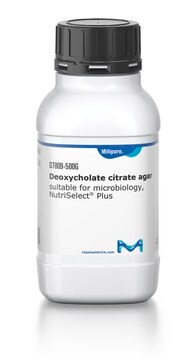95388
Bismuth sulfite Agar
suitable for microbiology, NutriSelect® Basic
About This Item
Recommended Products
Agency
according to GB 4789.4-2016
Quality Level
sterility
non-sterile
form
powder
shelf life
limited shelf life, expiry date on the label
composition
agar, 15 g/L
bismuth ammonium citrate, 1.85 g/L
brilliant green, 0.025 g/L
disodium hydrogen phosphate, 4 g/L
D(+)-glucose, 5 g/L
iron(II) sulfate 7x H2O, 0.55 g/L (equivalentto 0.3g/L iron(ll) sulfate water free)
meat extract, 5 g/L
mixed peptone, 10 g/L
sodium sulfite, 6.15 g/L
manufacturer/tradename
NutriSelect® Basic
technique(s)
microbiological culture: suitable
final pH
7.6±0.2 (25 °C)
application(s)
clinical testing
environmental
food and beverages
microbiology
suitability
selective and differential for Salmonella spp.
Application
The prepared agar is turbid and greenish-yellow.
Preparation Note
Footnote
The designations basic, plus, or prime are added to indicate the quality control level, from basic quality control to standard QC plus to prime for full regulatory compliance.
Legal Information
Hazard Statements
Precautionary Statements
Hazard Classifications
Aquatic Chronic 3
Supplementary Hazards
Storage Class Code
11 - Combustible Solids
WGK
WGK 3
Flash Point(F)
Not applicable
Flash Point(C)
Not applicable
Personal Protective Equipment
Choose from one of the most recent versions:
Already Own This Product?
Find documentation for the products that you have recently purchased in the Document Library.
Customers Also Viewed
Articles
Salmonella contamination is the second leading cause of food-borne illness worldwide. Controlling outbreaks of Salmonella is an important task for food regulators, restaurants and the food industry in general. The Salmonella family includes over 2,300 serotypes of bacteria, but two types, Salmonella enteritidis and Salmonella typhimurium, are responsible for about half of all human infections. Most outbreaks of Salmonella are traced back to dairy, poultry and meat products, but Salmonella can grow on nearly any food. Chicken, eggs and their derivative products are particularly high risk.
Our team of scientists has experience in all areas of research including Life Science, Material Science, Chemical Synthesis, Chromatography, Analytical and many others.
Contact Technical Service